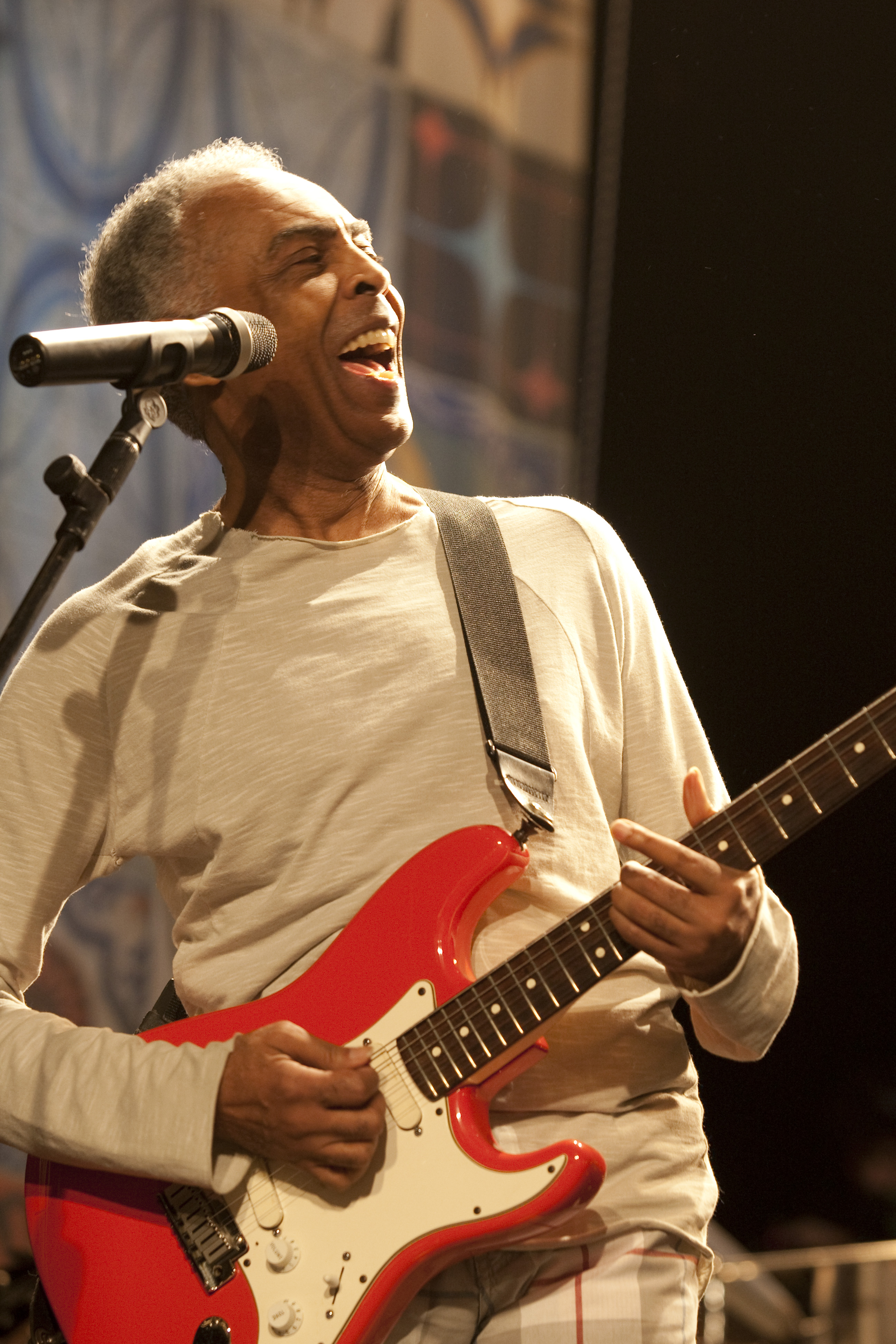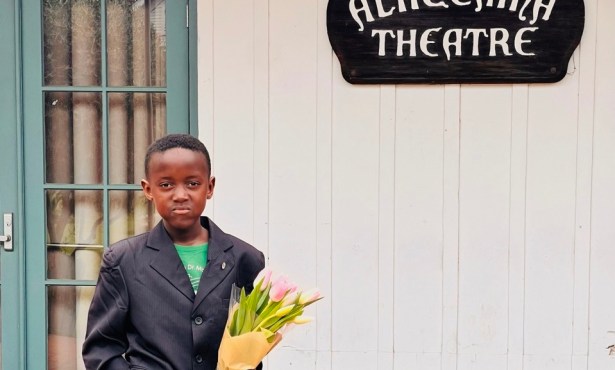Gilberto Gil Coming to UCSB
UCSB’s Arts & Lectures Presents Brazilian Legend in Concert
Brazil is a big country and one with many diverse cultures and forms of music, and if there’s one man who can claim to have spanned them all, it’s Gilberto Gil. Born 70 years ago in Salvador, Bahia, Brazil, Gil began playing accordion and trumpet in folk groups as a teenager in the 1950s. After hearing bossa nova for the first time in the early 1960s, Gil moved to São Paulo, where he soon found himself at the center of an incredibly fertile music scene. He wrote hits for other performers, tried his hand at composing jingles and soundtracks for Brazilian television, and found his voice singing original political protest songs. At the height of the ’60s global music revolution, right when the Beatles were recording Sgt. Pepper’s Lonely Hearts Club Band, Gil and a handful of other inventive young Brazilians came up with a new form of hybrid psychedelic music that became known as tropicália. After being thrown in jail by the military dictatorship then in power, Gil fled the country for England, where he became a popular jam partner and opening act for such groups as Pink Floyd, Rod Stewart, and Yes on the London club scene.

Some 40 years later, Gil is still going strong. He’s left behind an incredible legacy as a musician and also as a politician — he served as Brazil’s minister of culture until quite recently, stepping down from that post in 2008. He has championed racial equality, served as a musical ambassador, and continued to produce exceptional music the whole time. When he comes to UCSB’s Campbell Hall next week, Gil will be leading a seven-piece band that includes accordion and violin in music that is based on the baião and forró dance music forms popular in the northeastern states of the country. He will also mine the culture associated with that region’s annual festival of São João, which takes place in June. I spoke with Gilberto Gil by telephone from his home in Brazil last week.
What’s special about this region that the music you are doing now is from? It’s a very specific kind of area — hot, dry, and difficult to farm. The dialogue of the people with the land there is profound, as they are mostly quite poor and must derive subsistence from this harsh place. But musically, the area is very interesting. There are many troubadours, street poets who participate in an oral tradition and accompany themselves on accordion.
You were until recently the minister of culture in Brazil. Which would you rather do, play music or work in the government? I’m happy being back full time playing music. Politics is okay, and it’s important work, but the thing is you are always busy. It’s not just an occupation to be a part of the cabinet — it’s a preoccupation. When you play music, everybody welcomes what you do; the response is consistently positive. In politics, that’s not how it works.
Tell me more about how the audience responds to your music. What is a good night like for you? That’s the greatest achievement for a performing artist — to play for an audience that really gets it. That’s the aim of it. Whether the response is loud or soft and whether the audience is dancing or listening quietly does not matter as long as they feel it in their hearts.
4•1•1
Gilberto Gil will perform at UCSB’s Campbell Hall on Friday, October 26, at 8 p.m. For tickets and information, call 893-3535 or visit artsandlectures.sa.ucsb.edu.



